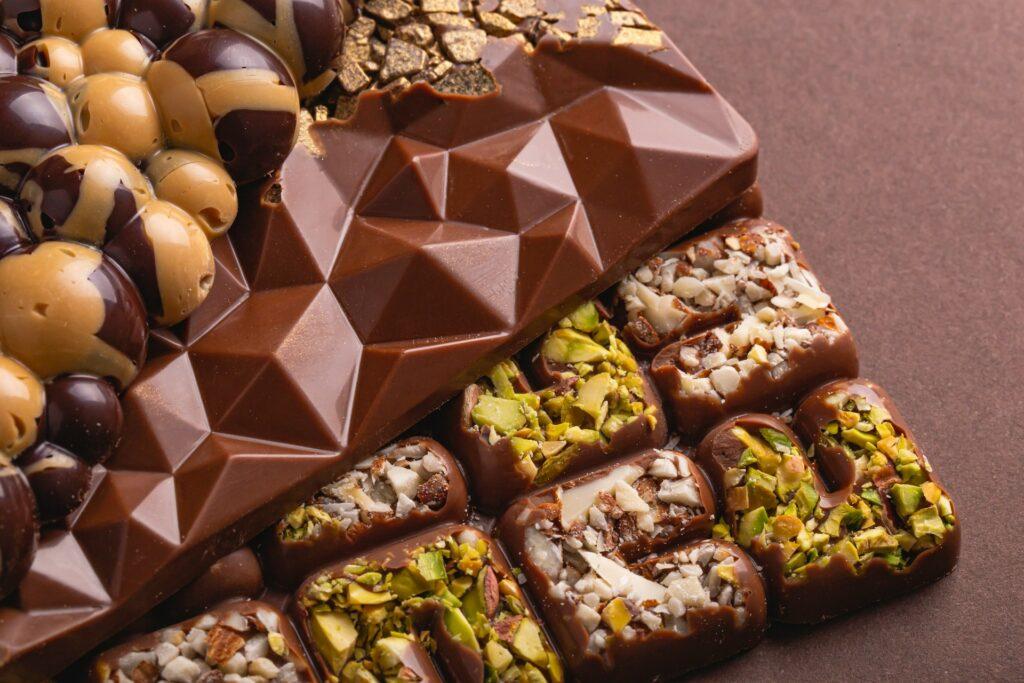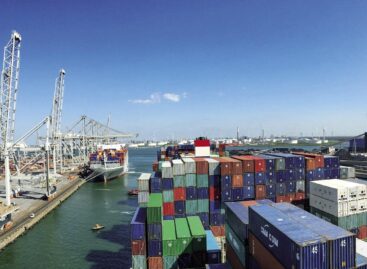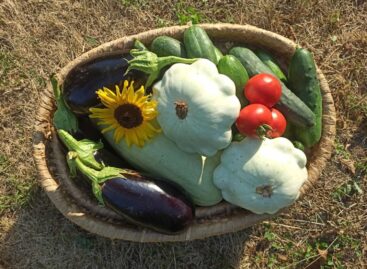Pistachio golden miracle: the global success of Dubai chocolate has opened a new chapter in the premium confectionery market
The new star of the global confectionery market has arrived from the Middle East: in just a few years, the “Dubai chocolate” has become a true luxury icon, simultaneously stirring up the chocolate and pistachio markets. Founded in 2021, Fix Chocolatier’s pistachio-tahini chocolate coated with gold dust conquered the world through social media, and within a short time, major international brands also responded to the trend – writes vg.hu.
 The specialty of the product lies in the meeting of textures and flavors: the thick milk chocolate shell hides a creamy pistachio filling and crunchy kadayif pieces, which offers a full-bodied yet light experience. The #DubaiChocolate hashtag, which went viral worldwide in 2023, has already garnered hundreds of millions of views, and the hype has had a real-world impact: according to NielsenIQ, sales of pistachio chocolates in the United States grew by 1,234 percent by mid-2024.
The specialty of the product lies in the meeting of textures and flavors: the thick milk chocolate shell hides a creamy pistachio filling and crunchy kadayif pieces, which offers a full-bodied yet light experience. The #DubaiChocolate hashtag, which went viral worldwide in 2023, has already garnered hundreds of millions of views, and the hype has had a real-world impact: according to NielsenIQ, sales of pistachio chocolates in the United States grew by 1,234 percent by mid-2024.
The demand has exploded not only among consumers but also among competitors. Trader Joe’s, Costco, Walmart, and Lindt have all launched their own versions, and smaller confectioneries are offering Dubai chocolate croissants, ice cream, and milkshakes. The Nuts Factory is already selling a 24-carat gold-coated “Dubai Golden Bar,” which sells for $80—and sells out almost immediately.
However, the trend has had unintended consequences: According to the Middle East’s largest pistachio producers, global demand has created supply difficulties by 2024, and the price of premium pistachios has risen to record highs.
The phenomenon is a textbook example of luxury and social media meeting: gold packaging, creamy texture, and visually perfect presentation have combined to create a new, “Instagram-compatible” candy category. Stew Leonard Jr., CEO of the American grocery chain Stew Leonard’s, said that “in fifty years of retailing, I have never seen sales at this pace.”
However, the hype did not remain without legal consequences: in Germany, a court in Cologne this year banned Aldi from using the “Dubai Chocolate” brand name after it was discovered that the product was actually made in Turkey. The decision could set a precedent for stricter regulations on origin designations, which could also be a warning sign for the international confectionery industry.
Dubai chocolate is thus both a gastronomic sensation and a business lesson: proof that the combination of visuals, social media and premium ingredients
Related news
Organic food is only sold in Hungary through imports – public catering could be a breaking point
🎧 Hallgasd a cikket: Lejátszás Szünet Folytatás Leállítás Nyelv: Auto…
Read more >









